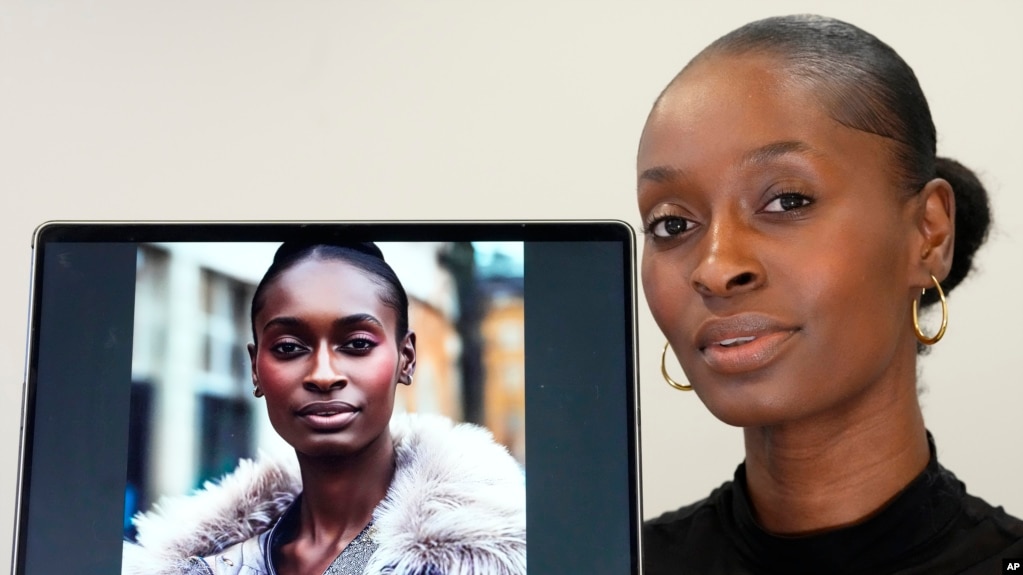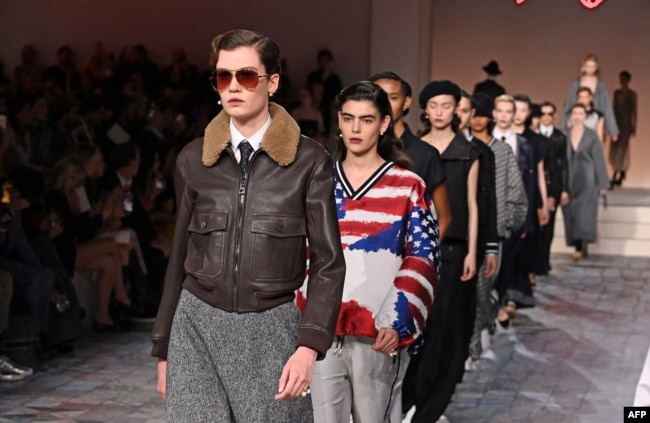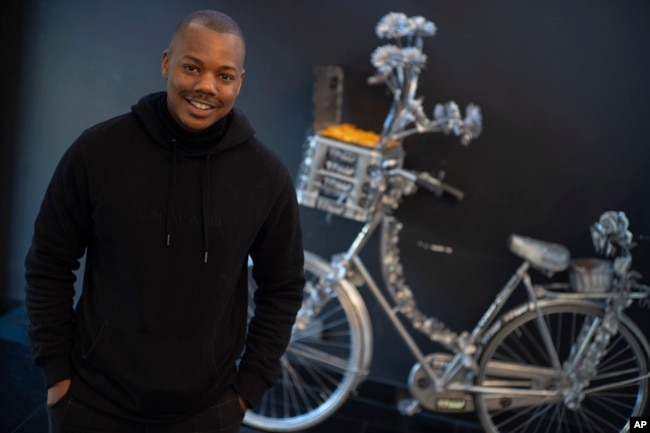AUDIO
Clothing Industry Wonders about Effect of AI on Models

Alexsandrah is a fashion model in London. She has a twin.
But her twin is not her sister.
The twin is a product of Artificial Intelligence, or AI.
Whenever Alexsandrah is not available to work with a photographer, the virtual twin takes her place.
When a company chooses to use the AI Alexsandrah, the real-life version gets paid. Alexsandrah said her AI twin is exactly like her.
Alexandrah’s twin is an example of how computer images are influencing creative industries.
Those in favor of using AI in fashion say the virtual models permit companies to show possible buyers how their clothing looks on people of all shapes and sizes. In the real world, it would be difficult and costly to find a model for every skin color and body shape.
The companies that make clothing say using AI prevents people from buying their products, trying them on at home, and then sending them back if they dislike them. The problem is that AI models can take work away from human models, makeup artists and photographers.
Criticism of the fashion industry
The fashion industry has often been criticized for using models who are only white or tall or who fit one idea of beauty. Activists for including many groups in fashion say some companies could seem like they are employing minorities when they are just using AI models.

Sara Ziff is a former fashion model who started Model Alliance, a nonprofit group for workers’ rights in the fashion industry. Ziff said the use of AI shows there is a difference between the industry’s words and its actions.
Levi Strauss is an American clothing company known for its blue jeans. In March 2023, the company said it would be testing AI-generated models from a company in Amsterdam. The aim was to show how its clothing fit people of all sizes. But after criticism, the company said it would not reduce its use of human models.
Levi Strauss said it would not “substitute” AI for action toward its “diversity, equity and inclusion goals.”
The Associated Press (AP) recently asked some clothing businesses to state their position on the use of AI models. AP asked Target, Kohls, Nieman Marcus, Walmart and Macys. It also asked international companies Temu, Shein and H&M. Some chose not to answer. Others said they do not use AI models. Walmart said it does not use AI models but “suppliers may have a different approach to photography.”
Lalaland.ai creates AI models. Michael Musandu started the company. Musandu grew up in Africa and studied in the Netherlands. He started the company when he saw that not many models looked like him – Black and African.

“One model does not represent everyone that’s actually shopping and buying a product,” he said. “As a person of color, I felt this painfully myself.”
Musandu said he is seeing a demand for his services, but his product is designed to supplement traditional photography not replace it. The goal is to help a buyer make better decisions and reduce product returns and waste.
In addition, he said, the company creates new jobs for computer programmers, who train the systems that create the models.
“If brands are serious about inclusion efforts, they will continue to hire these models of color,” Musandu said.
Industry pioneers
Others in the fashion industry are fully using AI. Cameron Wilson is a former fashion photographer who started a company in Britain called The Diigitals. Wilson, who is white, designed a Black, female model named Shudu in 2017. Wilson was criticized for creating a Black model. But Shudu was used in jobs for companies like Louis Vuitton and BMW. It also helped the human model Alexsandrah. She has worked in fashion shows as a real-life version of the AI model.
Alexsandrah said she is proud of her work that has come from The Diigitals. “The future generations can look back at and be like, ‘These are the pioneers,’” she said.
Other models are not feeling so good about AI. Yve Edmond works as a “fit model.” She tries on clothes for companies who want to see how their designs fit a real person. She worries that the AI modeling companies are using images and videos of real people to train their systems. She calls that a violation because humans are not being paid for their part in the technology.
Edmond said she was called for a photo session, but there were no new clothes. She was asked to move her body in certain ways and walk for a recording. The client said it was “research.” Edmond said she felt “swindled.”
Unlike film actors and writers, who went on strike to protest the use of AI without a legal agreement, there are no similar labor groups for models.
Ziff, of Model Alliance, is pushing for labor laws for fashion workers. The state of New York is working on the Fashion Workers Act. The law would include laws related to models who are used in AI. A model would need to give written permission to a company that planned to use AI to create a computer image of the model. The contract would show the pay rate and the length of time that the replica could be used.
For AI and the fashion business, it is still early. Ziff compared it to a time of lawlessness in the early American West. Alexsandrah said she believes AI is helping her career—with the right rules. But Edmond is not so sure about AI.
She said Earth has “a person of every shade, every height, every size. Why not find that person and compensate that person?”
____________________________________________
Words in This Story
fashion –adj. related to the industry of making clothes and appealing to people who want to buy clothing
twin –n. one of two babies who are born at the same time and often look like on another; an exact copy of something else
virtual –adj. related to something stored digitally on a computer
makeup –n. beauty products for the face
diversity, equity and inclusion (DEI) –n. ideas held by many different kinds of people who say they aim to make society equal through political, social and economic actions
supplement –n. something that adds to an existing product, industry or other form of activity
pioneer –n. a person who goes to a new place or does something in a way that has never been seen before
swindle –v. to cheat a person of something valuable
replica –n. an exact copy
compensate—v. to pay someone using methods that can include but are not limited to money
https://learningenglish.voanews.com/a/clothing-industry-wonders-about-effect-of-ai-on-models/7574409.html